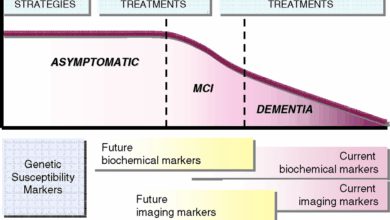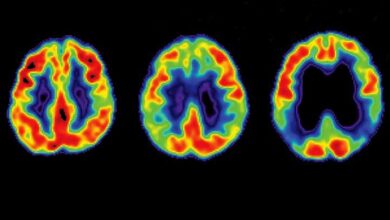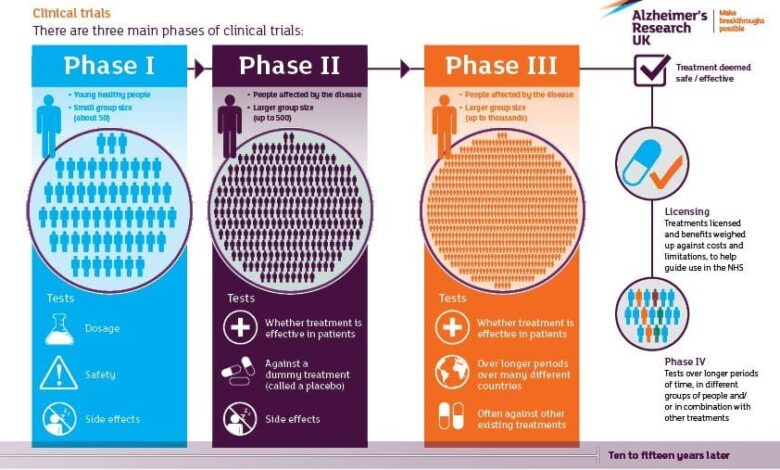
Should people with alzheimers be given medical marijuana – Should people with Alzheimer’s be given medical marijuana? This complex question explores the potential benefits, risks, and ethical considerations surrounding the use of cannabis for those living with this debilitating disease. From the purported mechanisms of cannabinoids to mitigate inflammation and oxidative stress, to the potential interactions with existing medications, this discussion delves into the multifaceted nature of this issue.
We’ll also examine patient experiences, legal frameworks, and the ongoing research needed to guide future practices.
The potential benefits of medical marijuana for Alzheimer’s patients are intriguing. Studies suggest that certain cannabinoids might improve cognitive function, sleep patterns, and mood. A table comparing various strains and their potential effects will help us understand the nuanced ways in which different components of cannabis might impact Alzheimer’s symptoms. However, potential side effects and interactions with existing medications are equally crucial considerations.
The potential for respiratory issues, anxiety, or mental health concerns must be weighed against the potential benefits.
Potential Benefits of Medical Marijuana for Alzheimer’s
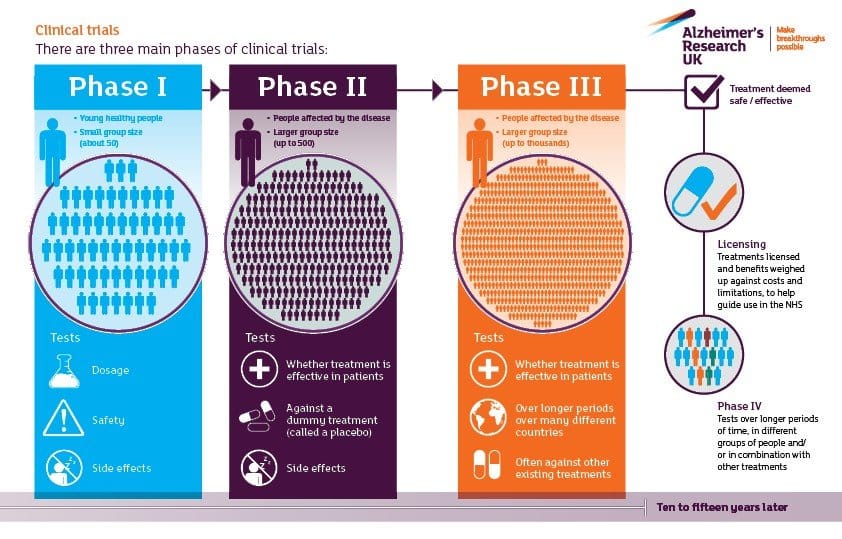
Medical marijuana, encompassing various cannabinoids, has garnered attention as a potential therapeutic avenue for Alzheimer’s disease. While the precise mechanisms and efficacy remain under investigation, preliminary research suggests promising avenues for symptom mitigation. This exploration delves into the potential benefits, focusing on the interplay between cannabinoids and Alzheimer’s-related pathologies.
Purported Mechanisms of Action
Cannabinoids may influence Alzheimer’s symptoms through multiple pathways. Their anti-inflammatory properties could potentially counteract the neuroinflammation characteristic of the disease. Furthermore, the antioxidant effects of some cannabinoids might help combat oxidative stress, a known contributor to neuronal damage. This dual approach could theoretically slow disease progression and improve the quality of life for those affected.
Research on Neurodegenerative Diseases
Existing research on cannabis use in neurodegenerative diseases, though limited in scope, offers some insights into potential improvements. Studies have hinted at potential benefits in cognitive function, sleep disturbances, and mood regulation. Improved cognitive function might translate to better memory and overall mental acuity, while improved sleep quality could reduce the impact of sleep disturbances common in Alzheimer’s. Enhanced mood could contribute to a more positive outlook and reduced behavioral issues.
However, it’s crucial to recognize that many studies are small-scale and further large-scale, well-designed studies are needed to confirm these findings.
Specific Cannabinoids and Their Roles, Should people with alzheimers be given medical marijuana
Cannabidiol (CBD) and tetrahydrocannabinol (THC) are two prominent cannabinoids frequently studied. CBD, known for its non-psychoactive properties, has shown potential in reducing inflammation and oxidative stress. Its interaction with various cellular pathways suggests a potential role in mitigating neurodegenerative processes. THC, on the other hand, while psychoactive, has been investigated for its potential to improve appetite and sleep, areas often affected by Alzheimer’s.
The debate around medical marijuana for Alzheimer’s patients is complex. While some argue for its potential benefits, it’s crucial to consider the potential side effects and long-term implications. Finding ways to improve the lives of those with Alzheimer’s is paramount, and understanding the best approach, including potential drug interactions, requires careful research. For instance, reducing lead exposure is a critical aspect of overall health, and this resource offers 5 ways to do just that: 5 ways to reduce your exposure to lead.
Ultimately, the decision of whether or not to use medical marijuana for Alzheimer’s should be made in consultation with healthcare professionals, considering the patient’s individual needs and circumstances.
However, its psychoactive properties raise concerns about potential side effects and interaction with other medications. Further research is necessary to determine the precise dosage and interaction with other medications.
Comparison of Medical Marijuana Strains
| Strain | Potential Benefits | Potential Drawbacks ||—————–|————————————————————————————————————————————————-|—————————————————————————————————————————————|| CBD-rich strains | Reduced inflammation, oxidative stress, potential mood enhancement, less likely to induce psychoactive effects.
| May not be effective in treating all symptoms, potentially less pronounced effects on appetite and sleep. || THC-rich strains | Potential improvements in appetite and sleep, may alleviate certain mood symptoms.
| Risk of psychoactive effects, potential interactions with other medications, may not be suitable for all patients.
|| Hybrid strains | Combination of CBD and THC, potentially offering a balanced approach. | Risk of psychoactive effects dependent on THC content, may not be optimal for all symptoms.
The debate around medical marijuana for Alzheimer’s patients is complex. While some believe it could potentially ease symptoms, the long-term effects are still largely unknown. Recent research on similar treatments, like the potential link between the COVID vaccine and multiple myeloma, covid vaccine multiple myeloma , highlight the complexities of medical interventions and the need for cautious consideration.
Ultimately, more research is needed to determine the safest and most effective approach for individuals with Alzheimer’s.
|
Potential Side Effects and Patient Monitoring
While medical marijuana offers potential benefits, potential side effects warrant careful consideration. These can range from dry mouth and dizziness to more severe reactions, such as anxiety or paranoia. Patient monitoring is crucial to detect and manage any adverse effects. Regular assessments, including blood tests and cognitive function evaluations, are essential to track treatment response and identify potential complications.
The debate around medical marijuana for Alzheimer’s patients is complex. While some studies explore potential benefits, it’s crucial to consider the broader context of potential side effects and interactions. For instance, research into how blood pressure medications can unexpectedly assist diabetes treatment, as detailed in blood pressure drug help diabetes treatment , highlights the intricate interplay of various health conditions.
Ultimately, the decision for Alzheimer’s patients regarding medical marijuana needs careful consideration and personalized guidance from medical professionals.
Close collaboration between patients, caregivers, and healthcare professionals is essential for ensuring the safe and effective use of medical marijuana in Alzheimer’s management. A tailored approach, based on individual patient needs and responses, is paramount.
Potential Risks and Challenges of Medical Marijuana for Alzheimer’s
While medical marijuana shows promise for managing some Alzheimer’s symptoms, it’s crucial to acknowledge the potential risks and challenges associated with its use. Understanding these drawbacks is essential for informed decision-making and responsible implementation of this treatment approach. This section delves into the potential adverse effects, interactions with existing medications, and the limitations of current research.The potential for adverse effects from medical marijuana use, while not universal, warrants careful consideration.
Individuals with Alzheimer’s may experience different reactions than the general population.
Respiratory Issues
Marijuana use, particularly smoking, can trigger or exacerbate respiratory problems. This is especially relevant for individuals with pre-existing respiratory conditions or those experiencing the decline in lung function often associated with Alzheimer’s disease. The smoke itself irritates the airways and can increase the risk of infections.
Anxiety and Mental Health Concerns
Some individuals may experience heightened anxiety or other mental health issues when using marijuana. This is particularly concerning for individuals with Alzheimer’s who may already be vulnerable to mood swings and cognitive fluctuations. The effects of marijuana on the brain can be unpredictable and potentially worsen existing mental health conditions. Careful monitoring of mood changes and emotional responses is vital.
Interactions with Existing Alzheimer’s Medications
A significant concern is the potential for interactions between medical marijuana and existing Alzheimer’s medications. Some medications used to manage Alzheimer’s symptoms can have unpredictable interactions with cannabinoids. These interactions could either reduce the effectiveness of the medications or potentially cause dangerous side effects. Pharmaceutical interactions need careful assessment and monitoring.
Comparison to Conventional Treatments
Currently, there is no definitive cure or standard treatment for Alzheimer’s disease. Conventional treatments aim to manage symptoms and slow the progression of the disease. Medical marijuana is a relatively new approach, and the evidence regarding its effectiveness in treating Alzheimer’s is still emerging. Direct comparisons of efficacy between medical marijuana and existing treatments are limited and require further research.
Limitations of Current Research
The research on medical marijuana for Alzheimer’s is still in its early stages. Many studies are small-scale and have not been rigorously tested in large, diverse populations. The lack of long-term studies makes it difficult to fully assess the long-term effects and efficacy of this treatment approach. Reliable and comprehensive data is still being collected.
Challenges in Conducting Rigorous Clinical Trials
Conducting rigorous clinical trials for medical marijuana in Alzheimer’s patients presents unique challenges. Ethical considerations regarding the safety and well-being of participants need careful attention. The variability of Alzheimer’s symptoms and the progressive nature of the disease make it difficult to standardize trial parameters. Precise and standardized measurements of symptom improvement and cognitive function are crucial, but also challenging.
Ethical and Legal Considerations: Should People With Alzheimers Be Given Medical Marijuana
The potential use of medical marijuana for Alzheimer’s patients raises complex ethical and legal questions. Balancing patient well-being with potential risks and societal concerns necessitates careful consideration of individual rights, public health, and legal frameworks. Navigating these complexities requires a nuanced understanding of both the benefits and drawbacks.The ethical implications of using medical marijuana for Alzheimer’s patients are multifaceted, particularly regarding informed consent and patient autonomy.
Determining the capacity of patients with varying stages of Alzheimer’s to make informed decisions about treatment is crucial. Surrogate decision-making for patients who lack the cognitive capacity to consent becomes a significant ethical dilemma. Ensuring the patient’s best interests are prioritized, even when their understanding is limited, is paramount.
Informed Consent and Patient Autonomy
Patients with Alzheimer’s, especially those in later stages, may not possess the cognitive ability to understand the potential benefits, risks, and alternatives associated with medical marijuana treatment. This necessitates a comprehensive assessment of the patient’s capacity to make informed decisions. Surrogate decision-makers, typically family members or legal guardians, play a vital role in the decision-making process, ensuring the patient’s well-being and best interests are upheld.
However, there can be conflicts of interest or differing perspectives among family members, leading to challenging situations that need careful consideration. Furthermore, establishing clear guidelines for surrogate decision-making is critical to ensure fairness and consistency across different cases.
Legal Frameworks Governing Medical Marijuana
The legal landscape surrounding medical marijuana varies significantly across different regions. The specific conditions for which medical marijuana is permitted, the regulations governing its cultivation, distribution, and use, and the standards for patient access vary considerably.
- Different jurisdictions have adopted different approaches to medical marijuana laws, with some allowing it for a broader range of conditions compared to others. For instance, some countries may only allow medical marijuana for specific conditions such as severe pain or epilepsy, while others have broader access.
- Regulations regarding the potency, dosage, and preparation of medical marijuana vary. Some regions allow for different formulations, while others might focus on specific extraction methods or limit access to certain strains.
Regulations and Access in Different Countries
| Country | Conditions for Medical Marijuana Use | Regulations | Access |
|---|---|---|---|
| Canada | A broad range of conditions, including chronic pain, multiple sclerosis, and others. | Strict regulations on cultivation, distribution, and patient access. | Generally accessible, with specific requirements for obtaining a medical marijuana license. |
| United States | Conditions vary by state, with some states allowing it for a wider range of conditions than others. | State-specific regulations, often with different rules on cultivation, distribution, and use. | Access varies significantly across states. Some states have strict regulations, while others have more lenient access policies. |
| Europe | Limited access in most European countries. | Stricter regulations compared to North America in most cases. | Access often restricted to specific, severe conditions. |
Access to medical marijuana for Alzheimer’s patients in different countries often depends on the specific regulations and policies of each country. This variability highlights the need for a global understanding of these policies.
Societal Impact
Legalizing medical marijuana for Alzheimer’s patients has the potential to affect society in various ways. Public perception, cost-effectiveness of treatment, and the long-term impact on the healthcare system are all factors to consider. For instance, the financial implications of increased access to medical marijuana, including costs associated with cultivation, distribution, and potential side effects, must be carefully examined.
Public Opinion
Public opinion regarding the use of medical marijuana for Alzheimer’s patients is divided.
- Supporters often emphasize the potential benefits of medical marijuana in managing symptoms like agitation, sleep disturbances, and anxiety, while acknowledging the need for careful monitoring and regulation.
- Critics raise concerns about potential side effects, interactions with existing medications, and the lack of robust scientific evidence supporting its efficacy in treating Alzheimer’s.
Patient Experiences and Support Systems
Navigating the complexities of Alzheimer’s disease often requires robust support systems. For those considering medical marijuana, the need for understanding, guidance, and a supportive network is amplified. This section explores the perspectives of patients and caregivers, the available support systems, the crucial role of healthcare professionals, and real-life experiences.This exploration aims to highlight the importance of patient-centered care in this delicate situation, acknowledging the diverse needs and individual journeys of those facing Alzheimer’s and contemplating medical marijuana.
Patient and Caregiver Perspectives
Understanding the diverse viewpoints of Alzheimer’s patients and their caregivers is vital in assessing the potential impact of medical marijuana. Different individuals will react differently to the same treatment.
| Perspective | Potential Concerns/Challenges | Potential Benefits/Hopes |
|---|---|---|
| Patient (with Alzheimer’s) | Potential for side effects, difficulties with understanding treatment specifics, and lack of control over the process. | Potential for symptom relief, improved quality of life, and a sense of control over their condition. |
| Caregiver | Concerns about safety, effectiveness, and potential legal ramifications. Concerns over potential drug interactions, and the impact on the patient’s overall well-being. | Hope for improved quality of life for the patient, reduced symptom burden, and greater support for their role as caregiver. |
Available Support Systems
Comprehensive support is crucial for patients and families navigating the complex landscape of medical marijuana use for Alzheimer’s.
- Patient Advocacy Groups: These organizations provide information, resources, and a supportive community for individuals with Alzheimer’s and their caregivers. They often host forums, workshops, and support groups, fostering a sense of shared experience and mutual understanding.
- Caregiver Support Groups: Caregivers face immense emotional and practical challenges. Support groups offer a safe space to share experiences, receive emotional support, and learn coping strategies.
- Specialized Medical Clinics: Clinics specializing in Alzheimer’s care often offer expertise in assessing the appropriateness of medical marijuana for individual patients and provide personalized guidance.
- Online Forums and Communities: Online platforms can connect individuals facing similar challenges, facilitating the exchange of information and experiences. However, the accuracy of information on these platforms must be critically assessed.
Role of Healthcare Professionals
Healthcare professionals play a pivotal role in guiding patients and families.
- Education and Counseling: Healthcare professionals are uniquely positioned to educate patients and families about medical marijuana’s potential benefits and risks, as well as the legal and ethical considerations.
- Personalized Treatment Plans: Tailoring treatment plans to individual patient needs is paramount. Healthcare professionals must consider potential interactions with existing medications, the patient’s specific symptoms, and the patient’s overall health status.
- Monitoring and Evaluation: Regular monitoring of the patient’s response to medical marijuana is crucial. Healthcare professionals need to carefully track the patient’s symptoms and adjust the treatment plan as needed.
Real-Life Experiences
“I saw a noticeable improvement in my husband’s sleep quality and reduced agitation after starting medical marijuana. It’s been a real game-changer for our family.”
A caregiver.
Individual experiences with medical marijuana for Alzheimer’s vary greatly. Some report significant improvements in symptom management, while others experience limited or no effects. It’s essential to understand that every patient’s journey is unique.
Patient-Centered Care
Patient-centered care emphasizes the importance of understanding and addressing individual patient needs and preferences. This is especially critical when considering alternative treatments like medical marijuana for Alzheimer’s.
Future Research Directions
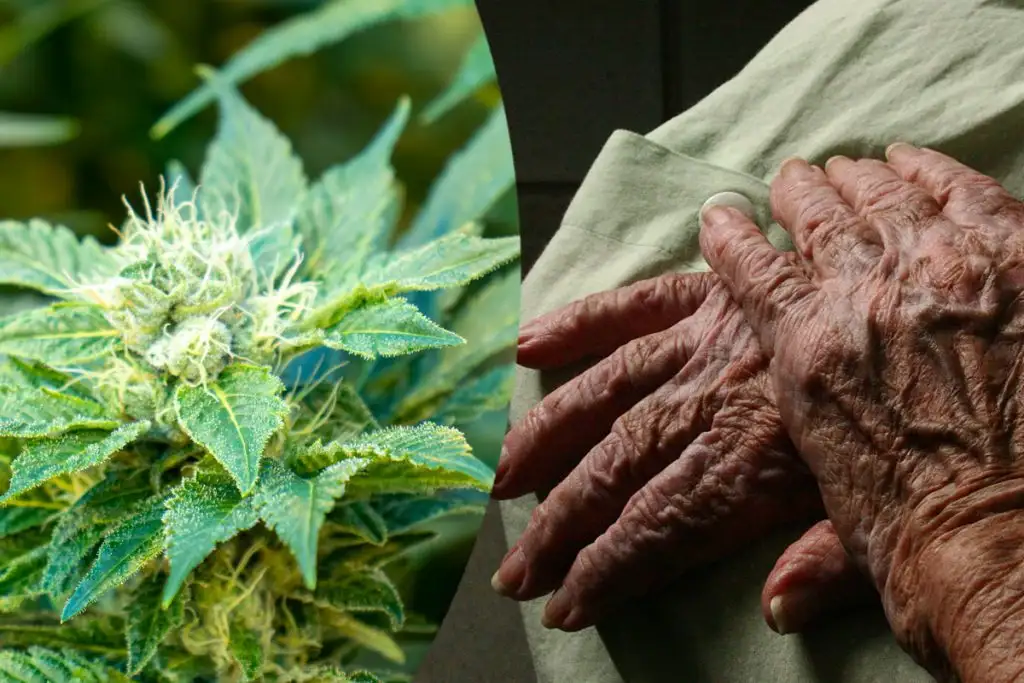
The burgeoning field of medical marijuana for Alzheimer’s disease necessitates rigorous and focused research to unlock its potential while mitigating potential risks. Current research, while promising, often lacks the depth and scope needed for definitive conclusions. Further investigation is crucial to establish evidence-based guidelines and optimize treatment strategies.The current landscape of Alzheimer’s research, while providing valuable insights, is often limited by methodological inconsistencies, small sample sizes, and the complexities inherent in studying neurodegenerative diseases.
To truly understand the impact of medical marijuana on Alzheimer’s, future studies must adopt a more comprehensive and robust approach.
Critical Gaps in Current Research
Current studies often lack standardization in patient selection criteria, dosage regimens, and outcome measures. This inconsistency hinders the ability to compare findings across different studies and to draw definitive conclusions about the efficacy and safety of medical marijuana for Alzheimer’s. Further, the underlying mechanisms by which cannabinoids may impact Alzheimer’s pathology require more in-depth investigation.
Potential Avenues for Future Research
Rigorous clinical trials are paramount to evaluating the efficacy and safety of specific medical marijuana formulations in Alzheimer’s patients. These trials should incorporate diverse patient populations, varying disease stages, and standardized assessments of cognitive function, behavioral symptoms, and overall quality of life. The trials should be carefully designed to address the complexities of Alzheimer’s, employing appropriate control groups and long-term follow-up periods.
Specific cannabinoid types and delivery methods (e.g., vaporization, edibles, transdermal patches) should be explored to optimize therapeutic effects. The impact of concurrent medications and potential drug interactions must be thoroughly evaluated.
Methods for Improving the Quality and Comprehensiveness of Future Studies
To enhance the quality and comprehensiveness of future studies, a collaborative effort involving neurologists, psychiatrists, pharmacists, and other relevant healthcare professionals is essential. Standardized protocols for data collection and analysis should be developed and rigorously adhered to across all studies. Large-scale, multi-center trials are crucial to increase the generalizability of findings and to identify potential treatment benefits for diverse populations.
Longitudinal studies are essential to understand the long-term effects of medical marijuana on Alzheimer’s progression. This will help to identify potential risks and benefits over time.
Importance of Interdisciplinary Collaboration
The complex nature of Alzheimer’s disease demands a multidisciplinary approach to research. Collaborations between neuroscientists, pharmacologists, and cognitive psychologists are essential to understand the underlying mechanisms of cannabinoid action on the brain. Pharmacists can play a crucial role in optimizing drug interactions and safety profiles. The integration of diverse perspectives and expertise will lead to a more holistic understanding of medical marijuana’s potential role in Alzheimer’s care.
Development of Evidence-Based Guidelines
The development of evidence-based guidelines for the use of medical marijuana in Alzheimer’s care requires a phased approach. First, comprehensive meta-analyses of existing research will help identify patterns and trends in the effectiveness of various medical marijuana formulations. Subsequently, rigorous clinical trials should be conducted to validate and expand upon these findings. Finally, the results should be disseminated to healthcare professionals and patients, creating clear guidelines for the appropriate use of medical marijuana in conjunction with other treatment modalities.
These guidelines should emphasize the importance of careful monitoring, individualization of treatment plans, and ongoing communication between patients, caregivers, and healthcare providers.
Closure
Ultimately, the decision of whether or not to prescribe medical marijuana for Alzheimer’s patients requires a careful balancing act between potential benefits and risks. A thorough understanding of the scientific evidence, coupled with a compassionate approach to patient-centered care, is essential. Ethical considerations, legal frameworks, and ongoing research are critical elements in this complex discussion. We hope this exploration has provided a comprehensive overview of this multifaceted issue.
